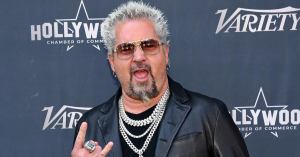Kroger has reached a deal to purchase Albertsons, merging two of the biggest grocery store chains in the United States. According to a report by CNBC, Kroger and Albertsons announced the plan for a merger jointly on Friday, with unanimous approval from their boards of directors. However, the acquisition will still need to be approved by economic regulators.
Kroger is currently the second-largest grocery store chain in the U.S., while Albertsons is the fourth-largest. Incidentally, Walmart is the largest chain while Costco is number three. Together, they will still be second-largest, but much closer to overtaking Walmart. Kroger will pay $34.10 per share to acquire Albertsons, for a grand total of $24.6 billion. On Thursday, Albertsons shares closed at $28.63 each.
Videos by PopCulture.com
Kroger and Albertsons are both parent companies to other brands of grocery stores around the country. Kroger reportedly includes Fred Meyers, Ralphs and King Soopers, while Albertsons includes Safeway, Acme and Tom Thumb. Altogether, the two companies have about 5,000 stores with over 700,000 employees.
This merger comes during a turbulent time in the grocery industry, and it may be a response in some ways. Food prices have reportedly risen by 11.2 percent over the last year thanks to inflation, and there’s no telling when those numbers might stabilize. Meanwhile, more and more customers are utilizing new ways to stock their friges and pantries, including delivery services, mail-order meal boxes and farm share programs.
To compete, supermarket companies have invested heavily in automation. Many are now offering their own home delivery services and curbside pick-up services. They are struggling to re-train employees for all these new services and keep up with demand.
Still, there’s no guarantee that regulators will sign off on Kroger and Albertsons’ merger – in fact, there are some outspoken voices on social media campaigning against it already. The two companies have significant overlap in some parts of the country, which could give regulators pause. On the other hand, some economists reportedly believe it will be approved because these companies are not the top number one and two in their industry.
Regulators could approve the merger with some stipulations – for example, they might require the companies to divest certain stores so that they do not keep a monopoly in densely-populated areas. Either way, the merger will need to go through a lengthy review process before we get an answer.








